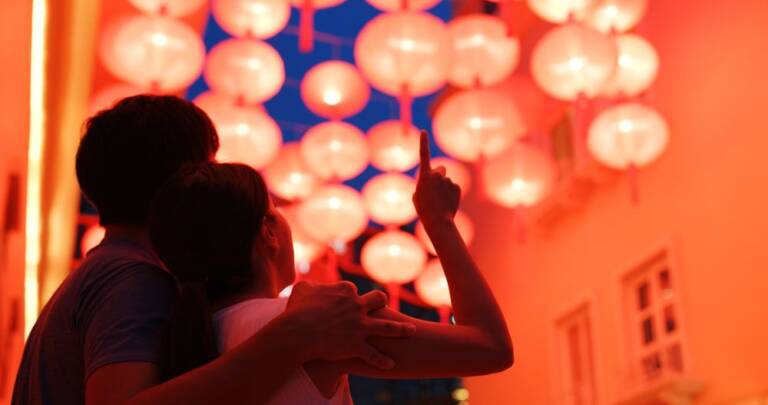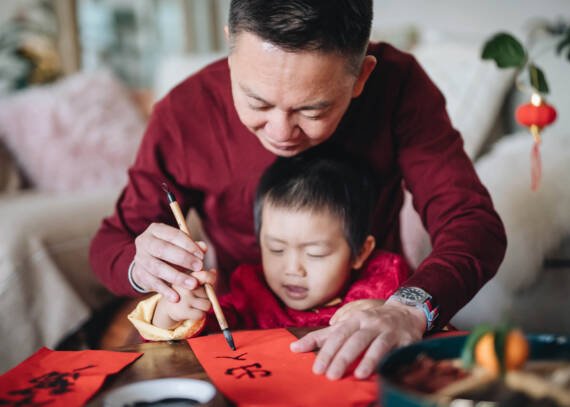speak fluent chinese 3-5x faster
Yes! Take the Scorecard11 Words for “Beautiful” in Chinese

Are you looking to elevate your Mandarin skills and impress your significant other or the Chinese people you interact with?
You’re in the right place.
This article explores 11 words for “beautiful” in Chinese, complete with examples, meanings, and context. From the poetic phrases that will delight your other half to the more practical adjectives, this comprehensive guide will help you enhance your communication skills and express your love and admiration more meaningfully.
Background and context
With over 1.1 billion speakers, Chinese is the second most spoken language worldwide. Its written form dates back thousands of years, evolving to reflect the nuances and complexities of Chinese culture. Poetry and literature have deeply influenced the language, resulting in a rich lexicon of terms to describe beauty in various ways.
When it comes to speaking Chinese, one of the most important things to know is how to express compliments. As you become more comfortable with the language, you’ll discover that adding these words to your vocabulary can help you express admiration and appreciation, whether it’s for a stunning sunset or for when you’re out for a romantic meal.

Standard words for beautiful in Chinese
If you want to add some new Mandarin Chinese vocabulary to your linguistic arsenal, learning to say beautiful is a great place to start. Mandarin speakers have a few standard words at their disposal for describing beauty, which are commonly used in daily conversations.
美丽 (Měilì) — Beautiful
Sounds Like: May-lee
Context: Describing a beautiful landscape, “这个风景真美丽” (Zhège fēngjǐng zhēn měilì) — “This scenery is truly beautiful.”
漂亮 (Piàoliang) — Pretty
Sounds Like: Pyow-lyang
Context: Complimenting someone’s appearance, “你今天真漂亮” (Nǐ jīntiān zhēn piàoliang) — “You look really pretty today.”
棒 (Bàng) — Great
Sounds Like: Bahng
Context: Praising someone’s work or performance, “你的演出真棒” (Nǐ de yǎnchū zhēn bàng) — “Your performance was great.”
美观 (Měiguān) — Aesthetically pleasing
Sounds Like: May-gwan
Context: Commenting on a well-designed object, “这个设计非常美观” (Zhège shèjì fēicháng měiguān) — “This design is very aesthetically pleasing.”
优美 (Yōuměi) — Graceful
Sounds Like: Yo-may
Context: Describing a graceful dancer, “她的舞姿非常优美” (Tā de wǔzī fēicháng yōuměi) — “Her dance moves are very graceful.”

Related Reading: Giving Compliments In Chinese: 35 Examples
Romantic words for “beautiful” in Chinese
For those who wish to express beauty more poetically or romantically, you can use the following terms and phrases:
仙子 (Xiānzǐ) — Fairy
Sounds Like: Syen-dz
Context: Describing someone with an ethereal beauty, “她看起来像一个仙子” (Tā kànqǐlái xiàng yīgè xiānzǐ) — “She looks like a fairy.”
妩媚 (Wǔmèi) — Charming
Sounds Like: Oo-may
Context: Complimenting someone’s charming demeanour, “她的微笑很妩媚” (Tā de wēixiào hěn wǔmèi) — “Her smile is very charming.”
娇艳 (Jiāoyàn) – Gorgeous
Sounds Like: Jyow-yen
Context: Praising a person’s stunning beauty, “她真是娇艳动人” (Tā zhēnshì jiāoyàn dòngrén) — “She is truly gorgeous and captivating.”
花容月貌 (Huāróngyuèmào) – Flowery appearance, moon-like beauty
Sounds Like: Hwah-rong-yweh-m-ow
Context: Describing someone with an exceptional beauty in a poetic way, “她有着花容月貌的面孔” (Tā yǒuzhe huāróngyuèmào de miànkǒng) — “She has a face with a flowery appearance and moon-like beauty.”
玉颜 (Yùyán) – Jade-like face
Sounds Like: Yoo-yen
Context: Complimenting someone’s flawless complexion, “她有一张玉颜” (Tā yǒu yī zhāng yùyán) — “She has a jade-like face.”
Related Reading: How to Express Your Love in Chinese
Remember that these are just some examples of romantic words for beautiful in Chinese. There are many more words and phrases to explore and incorporate into your vocabulary to express beauty. Understanding each word’s context and nuances will help you use them effectively and appropriately in your spoken and written Mandarin.

How do you say “you are beautiful” in Chinese?
Ignore the sunsets and the standard ways to say beautiful. What if you’ve fallen head over heels in love with someone and you want to let them know you think they’re stunningly beautiful?
To tell someone they are beautiful in Mandarin Chinese, you can use the phrase “你很漂亮” (Nǐ hěn piàoliang), which directly translates to “You are pretty.” However, depending on the context and your relationship with the person, you might choose one of the other romantic words mentioned above to convey a more poetic or heartfelt sentiment.
Related Reading: 10 Ways to Say “Best Friend” in Chinese
Beautiful eyes and other features
When complimenting someone’s appearance, especially the eyes or other features, choosing the appropriate word or phrase is important. For example, you can use the word 美丽 (Měilì) to describe beautiful eyes or a pretty face and 漂亮 (Piàoliang) for a generally pretty appearance.
Describing beautiful places
You’re standing on a mountainside and checking out the stunning views. Now, it’s unlikely that you’d want to use the same words that you;d use to tell someone they have pretty eyes, right?
When talking about a beautiful place or scenery, words like 美丽 (Měilì) and 美观 (Měiguān) are suitable to express the beauty of a landscape or even a well-designed space. These words can be used in sentences to describe the elegance and charm of various places, both indoors and outdoors..
Related Reading: How to Propose In Chinese: 10 Ways to Pop the Question
Characters and writing
The Chinese language uses characters to represent words; each character has unique strokes and structure. To better appreciate the beauty of these romantic words, consider learning to write them. This will help you remember the characters and also give you insight into the artistic style of Chinese writing. You can find out more about the basics of Chinese characters here.
Learning from videos and books
To further enrich your understanding of these romantic words and their usage, consider watching videos or reading books that showcase their use in literature or conversation. This will provide you with a more immersive experience and help you appreciate the nuances of the Chinese language. And having an audio element involved can be a massive influence on your ability to learn.
Incorporating keywords in context
As you begin to learn and incorporate these romantic words into your conversations, remember to use them in context. For example, when describing someone’s inner beauty or grace, opt for phrases like 仙子 (Xiānzǐ) or 玉颜 (Yùyán). When expressing admiration for celebrities or famous personalities, consider using words like 婀娜 (Ēnuó) or 妩媚 (Wǔmèi) to create vivid, beautiful imagery.

Appreciating beauty in Chinese
Whether you’re trying to woo that special someone or simply trying to add some flair to your vocabulary, learning some of these romantic words for “beautiful” in Chinese can be a great way to express yourself in a more nuanced and sophisticated manner. So why not explore some of these words and see which resonate with you? You might just find a new favourite.








